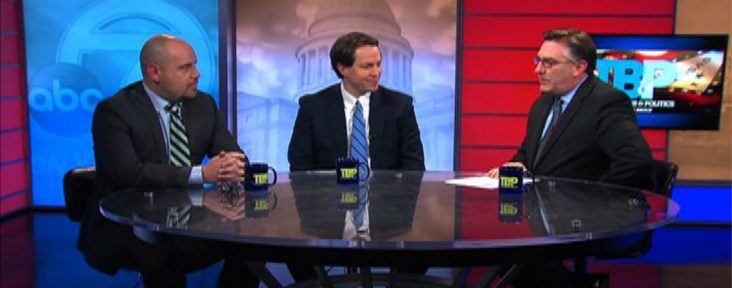Legislators explain vote path to Governor’s health care reform
by March 27, 2016 8:51 am 187 views

As state lawmakers prepare for an April 6th special session to consider the fate of the governor’s health care reform program, Arkansas Works, two state lawmakers say there are multiple issues to address to secure the votes needed for passage.
Sen. Jeremy Hutchinson, R-Little Rock, and Rep. Clarke Tucker, D-Little Rock, appeared on this week’s edition of Talk Business & Politics to explain how Republicans and Democrats may be persuaded to support the Medicaid expansion plan.
Hutchinson, nephew to Gov. Asa Hutchinson, acknowledged that the policy debate over Arkansas Works is likely to get a 50%-plus one vote in the special session, but the soon-to-follow fiscal session will require 75% vote margins to secure funding for the program in the Department of Human Services budget.
“Do you really think we ought to be making policy decisions in the budgetary process?” Hutchinson argued. “By voting against the DHS budget or the Medicaid budget, that has far bigger implications than one specific policy or another. And does it set a really bad precedent if we’re going to vote against an entire agency’s budget because of one policy that we may or may not like?”
He also said GOP lawmakers must decide if they’re willing to make more than $100 million in cuts if Arkansas Works is not funded.
“I think when you look at how devastating it would be to end this right now at least, I think it will be very hard-pressed for members – who may in their heart of hearts – think this is a wrong decision – but they have to look at the state, its people, the budget, higher ed, highways, just basic services, education – you can go through the list. It will all be cut and that may give people pause once they realize the full ramifications of voting against a DHS budget,” Hutchinson said.
Tucker said for Democrats they’ll be seeking assurances that current private option enrollees are protected through a transition to Arkansas Works and that details on the new program are clear before and after federal permission is granted.
“I think the biggest thing is just clarity for what the program ultimately will be,” said Tucker. “I think Democrats also want to make sure that the program – which most people agree has been a positive for the state, although certainly not everyone (agrees) – but Democrats want to make sure it’s going to stay in place if we pass some law that requires a waiver. That the federal government doesn’t ultimately grant. So we want to make sure the program stays in place.”
Tucker also said that he felt Democrats and the governor may trade for votes, but if they do, it will center on related programs not disconnected commitments.
“I think if Democrats were to shoot for something like that, it would be something that would be related, so it wouldn’t be total horse trading on one issue for another,” he said.
Hutchinson agreed and said it may work that way with Republican legislative votes, too.
“I think there could be adjustments, there’s negotiating certainly. I don’t think you’ll see any traditional horse trading where you take something unrelated and promise you’ll do this for that.”
The two legislators also discussed a plan announced this week by Gov. Hutchinson to require drug testing for Arkansans seeking jobless benefits. Sen. Hutchinson said despite an estimated cost of $1.5 million to potentially save $40,000 in improperly distributed benefits, the effort is about “program integrity.”
“If you can’t pass an employer’s drug test, which virtually all employers require, then you’re not holding up your end of the bargain, you are not actively seeking a job,” Hutchinson said.
Tucker said the numbers don’t add up. “I could defend the politics of it because it does make sense politically to drug test welfare recipients, but in reality, the numbers are just clear as day… I basically just view as government growth and making government less efficient.”
Hutchinson countered that while the math may not suggest a good return, there is an incalculable number tied to the drug testing effort. “What you can’t calculate is the deterrent factor,” he said. “You may not catch people who are actually ‘dirty,’ but you may deter people which is the intent.”
Tucker said he looked forward to the debate and added, “I’d be for drug testing legislators.”
You can watch Tucker’s and Hutchinson’s full conversation below. The two lawmakers also discussed Tucker’s effort to clean up “dark money” spending in Arkansas campaigns, while Hutchinson clarified an upcoming debate in the Senate Judiciary Committee he chairs involving merit selection of judges.
